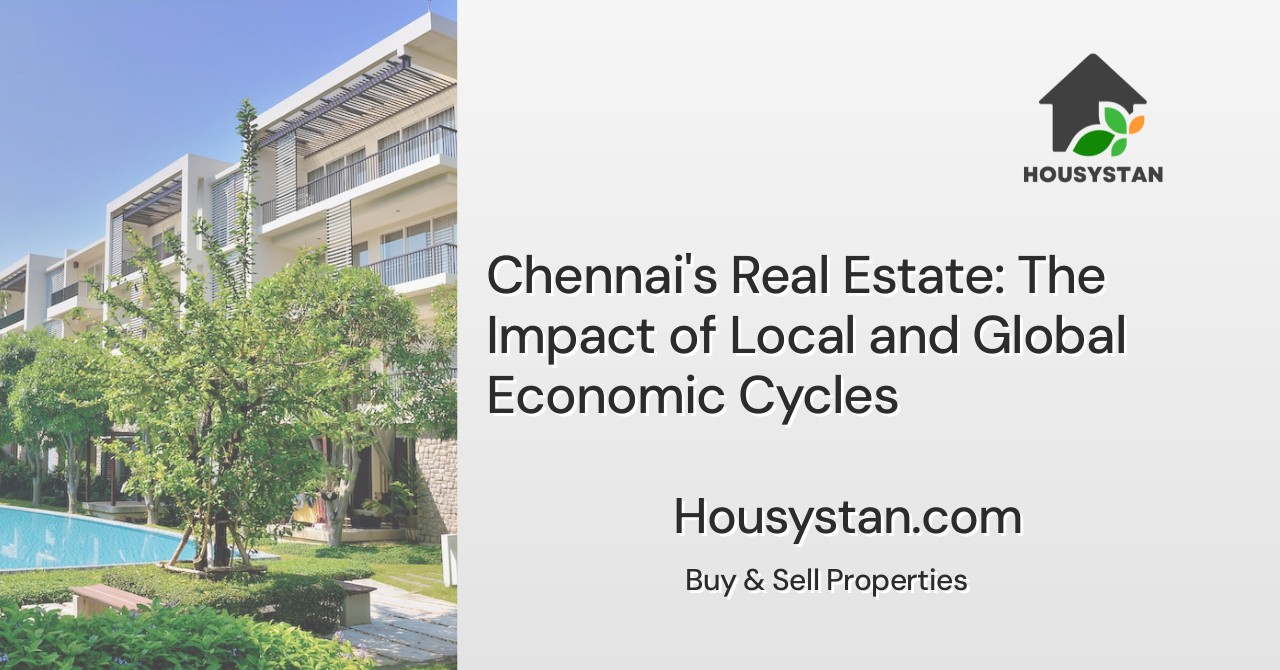Chennai's Real Estate: The Impact of Local and Global Economic Cycles
Read latest blogs and articles from Housystan

The Information mentioned here was last updated on:
29/1/2026Chennai's Real Estate: The Impact of Local and Global Economic Cycles
Chennai, the capital of Tamil Nadu, stands as one of India’s most dynamic real estate markets. This vibrant city, known for its thriving IT corridors, cultural heritage, and robust infrastructure, has experienced significant transformation over the years. Understanding the influence of both local and global economic cycles on Chennai’s property sector is crucial for investors, homebuyers, and industry stakeholders aiming to make informed decisions.
Local economic drivers, such as burgeoning employment opportunities in technology parks, expansion of metro rail connectivity, and government initiatives like smart city projects, have contributed to steady demand for residential and commercial spaces in Chennai. Neighborhoods such as OMR, Velachery, Anna Nagar, and Porur have seen a surge in both property values and rental yields, making them ideal choices for investment. Additionally, the rise in start-ups and multinational corporations setting up offices in Chennai has fueled the need for modern commercial complexes and co-working spaces across the city.
- Verified Tenants/Buyers
- Unlimited Property Listing
- Zero subscription/charges fee
On the global front, Chennai’s real estate market is sensitive to international economic trends. Fluctuations in foreign direct investment, currency exchange rates, and policies affecting the IT and manufacturing sectors play a pivotal role in shaping property prices. For instance, the influx of non-resident Indians (NRIs) investing in Chennai’s real estate, especially during periods of favorable exchange rates, has led to increased liquidity and enhanced market stability. Moreover, global economic slowdowns or recessions can impact demand, affecting pricing strategies and project launches by developers.
The recent surge in infrastructure development, including the Chennai Peripheral Ring Road and expansion of the airport, has further cemented the city’s status as a real estate hotspot. These projects not only improve connectivity but also attract both domestic and international investors seeking long-term appreciation. Sustainability trends and eco-friendly construction methods are gaining momentum, reflecting a global shift towards green real estate, which is also catching up in Chennai’s market.
In conclusion, Chennai’s property sector thrives on a complex interplay of local advancements and international economic patterns. By monitoring these economic cycles closely, buyers and investors can tap into the city’s evolving landscape, making strategic decisions that promise future growth and security. For those looking to capitalize on Chennai’s real estate opportunities, staying updated with both regional and global trends is essential for maximizing returns and minimizing risks.